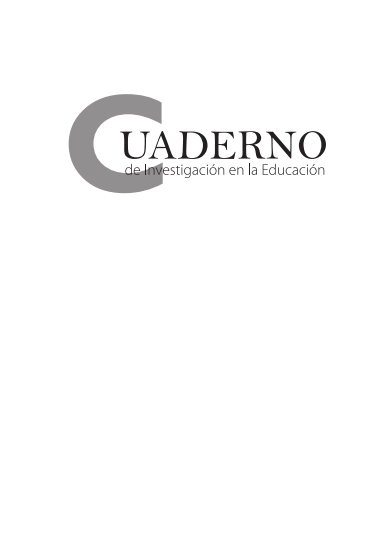Abstract
In this article, the author argues that language educators need more than just the acquisition of knowledge to guide students in communicating effectively across languages. The discussion explores ideological shifts that are necessary to achieve transformative education in this era. The illustrations provided invite the reader to embrace visionary ways to teach, to promote the learning of students, and to self-direct ongoing professional growth in the field of language education. The discussion opens with an overview of two key trends that have impacted education in the last two decades. Some of the paradigm shifts that language teachers must embrace to be relevant and effective in contemporary classrooms are identified. Finally, it invites educators to create spaces where teaching, learning, and professional development are designed to respond to the exigencies of a globalized, technological, multilingual, and multiliterate world.
How to cite:
Nevárez-La Torre, A. A. (2014). Necessary ideological shift in teaching language: Creating spaces for teaching, learning, and professional development. Cuaderno de Investigación en la Educación, 29, 32-46. Retrieved from https://revistas.upr.edu/index.php/educacion/article/view/13252
References
Azevedo, C. (2013). Movie segments to assess grammar goals [Blog post]. Retrieved from http://mmoviesegmentstoassessgrammargoals.blogspot.com
Baker, C. (2011). Foundations of bilingual education and bilingualism (5th ed.). Clevedon, UK: Multilingual Matters.
Canagarajah, A. S. (2012). Translingual practice: Global Englishes and cosmopolitan relations. New York, NY: Routledge.
Canagarajah, A. S. (Ed.). (2013). Literacy as translingual practice: Between communities and classrooms. New York, NY: Routledge.
Castek, J., Leu, D. J., Jr., Coiro, J., Gort, M., Henry, L.A., & Lima, C. (2007). Developing new literacies among multilingual learners in the elementary grades. In L. Parker (Ed.), Technology-mediated learning environments for young learners: Connections in and out of school (pp. 111-153). Mahwah, NJ: Lawrence Erlbaum Associates.
Celic, C. (2012). Translanguaging: Strategies for the classroom. NYSIEB Seminar, March 16, 2012. Retrieved from http://www.nysieb.ws.gc.cuny.edu/files/2012/03/Translanguaging-PPT-Christina-Celic.pdf
Creese, A., & Blackledge, A. (2010). Translanguaging in the bilingual classroom: A pedagogy for learning and teaching? The Modern Language Journal, 94, 103-115.
Cummins, J., Brown, K., & Sayers, D. (2007). Literacy, technology, and diversity: Teaching for success in changing times. Boston, MA: Allyn & Bacon.
de Jong, E. J. (2011). Foundations for multilingualism in education: From principles to practice. Philadelphia, PA: Caslon Publishing.
García, O. (2009). Bilingual education in the 21st century: A global perspective. Malden, MA: Wiley-Blackwell.
García, O., Skutnabb-Kangas, T., & Torres-Guzmán, M. (Eds.). (2006). Imagining multilingual schools: Languages in education and globalization. Clevedon, UK: Multilingual Matters.
Hornberger, N. H., & Skilton-Sylvester, E. (2000). Revisiting the continua of biliteracy: International and critical perspectives. Language and Education, 14(2), 96-122.
Makoni, S., & Pennycook, A. (Eds.). (2007): Disinventing and reconstituting languages. Clevedon, UK: Multilingual Matters.
Mills, K. A. (2011). The multiliteracies classroom. Bristol, UK: Multilingual Matters.
Maurais, J., & Morris, M. A. (Eds.). (2003). Languages in a globalising world. Cambridge: Cambridge University Press.
Najam, A., Runnalls, D., & Halle, M. (2007). Environment and globalization: Five propositions. Manitoba, Canada: International Institute for Sustainable Development, Environment and Governance Project.
New London Group. (1996). A pedagogy of multiliteracies: Designing social futures. Harvard Educational Review, 66(1), 60-92.
Nevárez-La Torre, A. (2010). The power of learning from inquiry: Teacher research as a professional development tool in multilingual schools. North Carolina: Information Age Publishers.
Panayotou, T. (2000). Globalization and environment. CID Working Paper No. 53, Environment and Development Paper No.1. Cambridge, MA: Center for International Development at Harvard University.
Shklovski, I. (2011). Virtual transnationalism: Technologically supported social network phenomenon. Position Paper for the Transnational HCI workshop Conference on Human Factors in Computing. Montreal, Canada. Retrieved from http://www.princeton.edu/~jvertesi/TransnationalHCI/Participants_files/Shklovski.pdf
United Nations Environment Programme (UNEP). (2007). Connected dreams: Globalization and the environment. Our Planet: the Magazine of the United Nations Environment Programme. Nairobi, Kenya: UNEPPub.
Wong Fillmore, L. (1991). When learning a second language means losing the first. Early Childhood Research Quarterly, 6, 323-346.
The contents published in the Puerto Rico Journal of Education is freely distributed under open access practices, in accordance with the Creative Commons license, Attribution-NonCommercial 4.0 International (CC BY-NC 4.0). Through these principles, the journal and its authors allow readers to access, reproduce and share articles in full text. Users should give credit to authors in a reasonable way without suggesting they have their support. Under no circumstances, readers may make use of the contents for commercial purposes. The authors retain copyright on their works.

